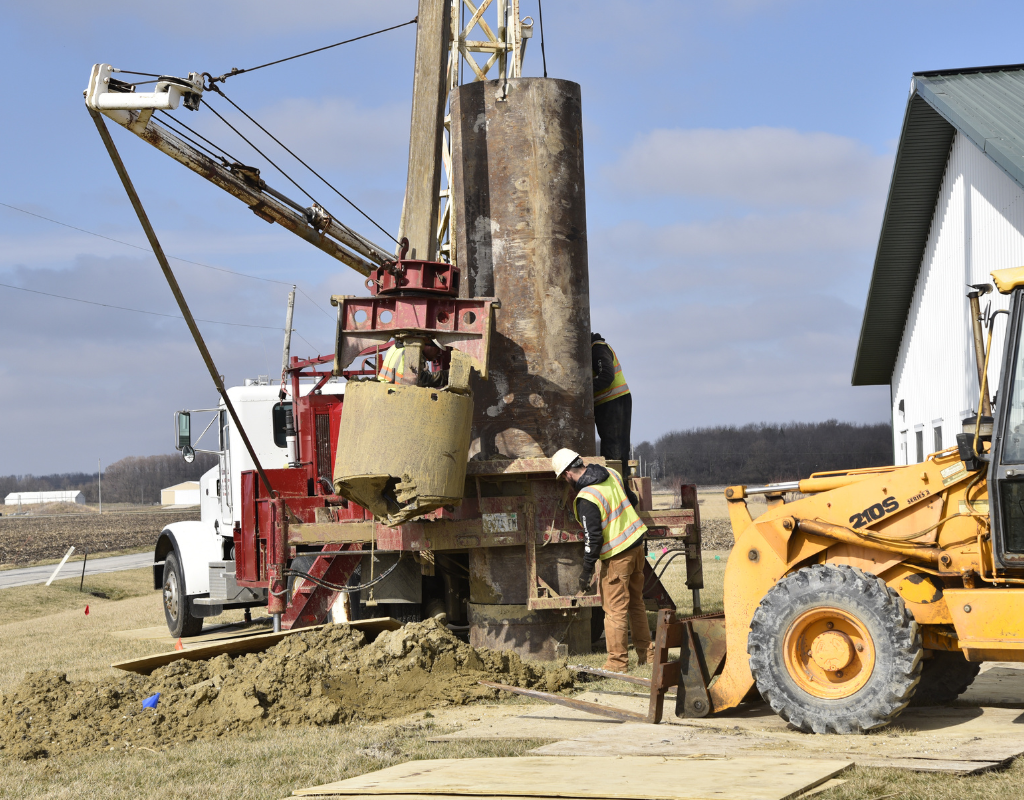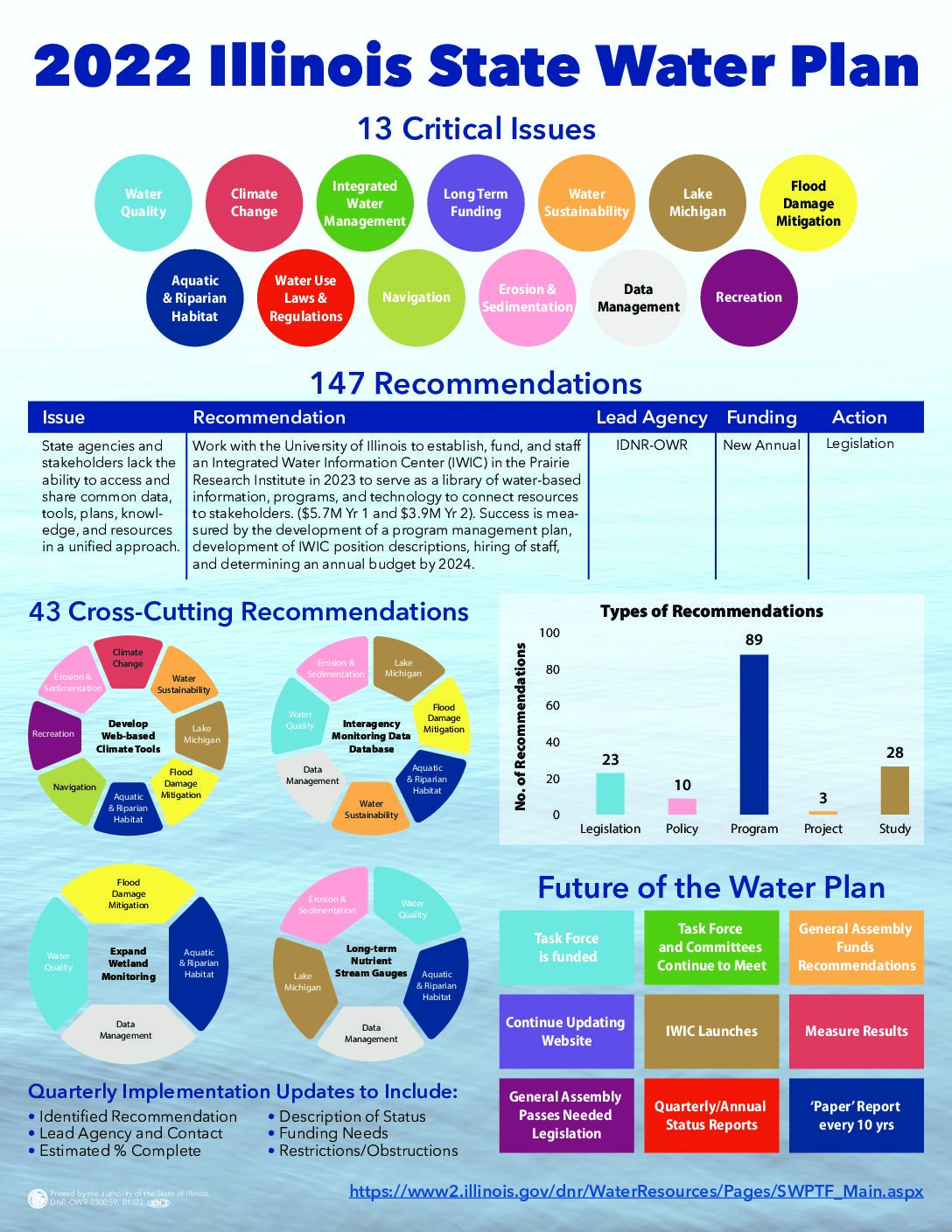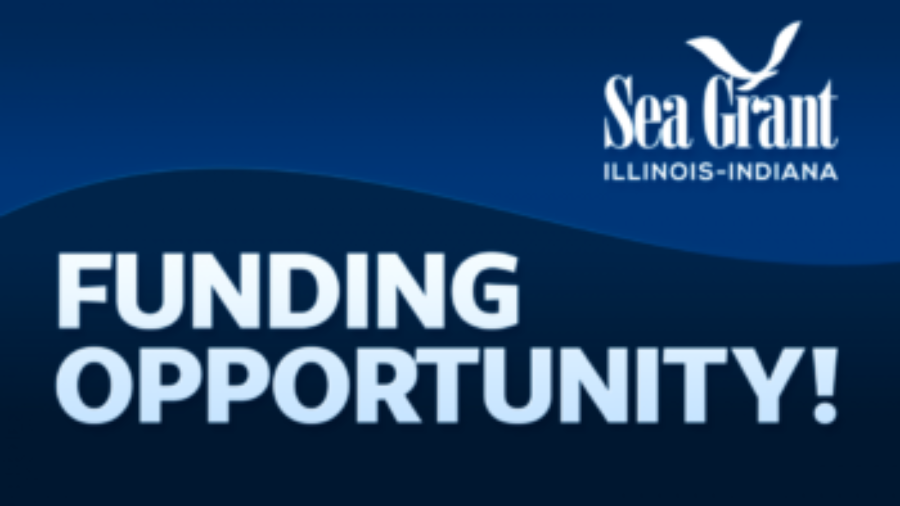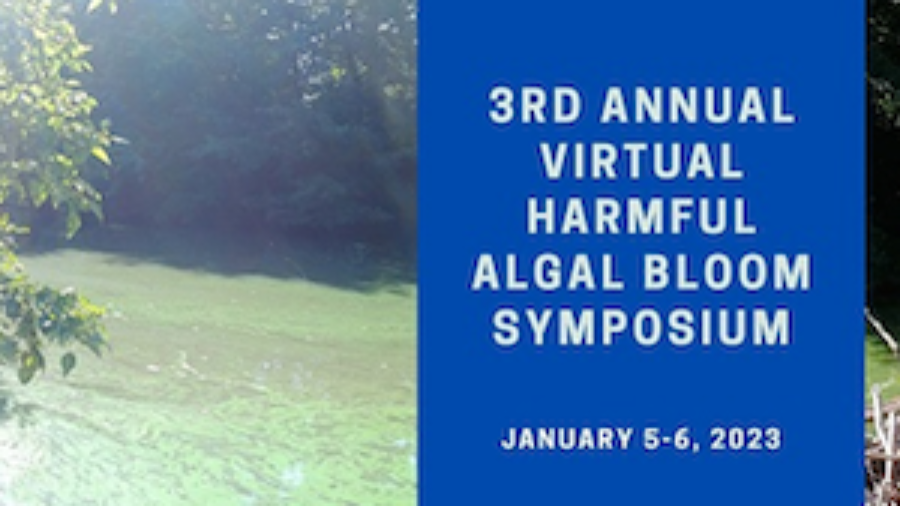(Now Closed) NIWR has Funding for Student Travel to the UCOWR Conference
We are pleased to announce that the National Institutes of Water Resources (NIWR) is sponsoring travel awards for students to attend the Universities Council on Water Resources (UCOWR) conference from June 13-15, 2023 in Fort Collins, CO. One awardee per NIWR region will be chosen at random, with awards ranging from $1,200 to $2,500. For more information and to enter the drawing, click on this link (students should apply on their own behalf): https://forms.gle/sRGsXuLW2PSwapqs9
For questions, contact Michael Dietz at Michael.dietz@uconn.edu.

(Now Closed) 3 Request for Proposals – FY2023 104G is Funding General Water-Related Research, PFAs, and Aquatic Invasive Species in the Upper Mississippi River Basin.
The National Institutes of Water Resources (NIWR) has released its annual request for proposals (RFPs) under its National Competitive Grants Program.
In cooperation with USGS, these RFPs, submitted through each state’s Water Resources Research Institute (WRRI), have historically funded only four applicants throughout the nation. In the last few years, however, Congress has recognized the unique capabilities of this program and additional funds have been allocated around specific focus areas. In addition to a general water-related focus of the annual RFP(104G), an RFP focusing on PFAs and an RFP focusing on Aquatic Invasive Species in the Upper Mississippi River Basin have been added. All three RFPs require similar preparation and encourage regional WRRI/Water Science Center collaborations. Any investigator at an institution of higher learning is eligible to apply for these grants with research that focuses on water issues of regional and national importance.
Expected FY2023 project start date: 01/01/2024.
USGS is expected to award 10 PFAS, 5 AIS, and 6 general 104G proposals, nationally.
NOTIFICATION OF INTENT DUE: 03/20/23
National Competitive Grants RFP Informational Webinar announcement
For the full application details, click here.
Given the potential benefit of these opportunities to the Great Lakes Region, the WRRIs in this region (IL, IN, MI, MN, OH, WI) are organizing a joint informational webinar focusing on RFP preparation and regional collaborative opportunities. We discuss the full proposal process, and funding priorities and give researchers a chance to ask questions.
COST SHARING/MATCHING REQUIREMENT: Each applicant must match each Federal dollar provided to support each proposed project with not less than one dollar from non-federal sources. Please check with your campus business office for allowable sources of matching funds.
INDIRECT COSTS: As per the Water Resources Research Act, federal funds shall not be used to pay indirect costs, however, unrecovered indirect costs on both the federal and non-federal funds CAN be used to help fulfill the Cost Sharing/Matching Requirement.
CLUSTER HIRE: The USGS Water Mission Area is Hiring Interdisciplinary Data Scientists and Physical Scientists
The U.S. Geological Survey Water Mission Area is hiring multiple Physical Scientists and Interdisciplinary Data Scientists. This is a cluster hire for permanent federal positions at multiple levels of experience (GS11/12 and GS12/13). Apply online at USAjobs.gov, where the positions are anticipated to open to applicants in mid- to late-February. We will continue to update this page with information, including direct links to the vacancies as soon as they are available.
These vacancies will have application caps. When the applicant count reaches 75 applications, the vacancy will close at 11:59 PM ET on the day 75 applications are submitted. All applications received before that time will be accepted. For all positions, an unofficial transcript and detailed resume summarizing job qualifications and relevant skills are needed. Please be sure to include any additional documentation listed on the USAjobs vacancy to ensure your application is considered.
We will be hosting an informational webinar on Thursday February 16th at 4:30 pm EST. Join the Microsoft Teams Live Event at this link. There will be a second webinar mid- to late-February when the vacancies open. For additional information, please follow the USGS Data Science Twitter feed (@USGS_DataSci).
Our Commitment to Diversity, Inclusion, and Transparency
We are committed to creating a diverse and inclusive workplace where all employees feel valued and have the support they need to thrive. We believe that a diverse team brings a wide range of perspectives, experiences and ideas that drive innovation and improve our ability to deliver cutting edge science. We encourage applicants from all backgrounds, including those from underrepresented groups, to apply for these positions.
About the positions
This cluster hire is part of a continued investment in advanced modeling and statistical capabilities, geospatial capabilities, strong data management, data infrastructure and workflows, product management, effective data analysis and dissemination, communication, and decision-making. There are 4 position announcements, which will funnel to multiple roles within the organization. Applicants may apply to and be considered for multiple announcements, as long as they meet the minimum qualifications for the grade and job series.
These opportunities are with the Earth Systems Processes Division (ESPD), Integrated Information Dissemination Division (IIDD), Integrated Modeling and Prediction Division (IMPD), and Observing Systems Division (OSD).
Interdisciplinary Data Scientists
We are seeking multiple Interdisciplinary Data Scientists for roles in ESPD, IIDD, and IMPD. Positions will focus on the following areas: physical, hydrologic, biological, natural resources, or geospatial data and/or information delivery, and use of a variety of data collection and processing methods, reproducible data pipelines in modern programming languages (e.g., R, Python), data visualization, artificial intelligence / machine learning models, statistical/applied mathematical skills as applied to water resources problems, and/or advancing current data users’ workflows
There will be two job announcements for Data Scientists – one for GS11/12 positions and one for GS12/13 positions. Interdisciplinary Data Scientists may qualify as a physical scientist (1301), biologist (0401), or mathematical statistician (1529).
Physical Scientists
We are seeking multiple Physical Scientists for roles in ESPD, IIDD, IMPD, and OSD. Positions will focus on the following areas: physical, hydrologic, or geospatial data and/or information delivery, and use of a variety of data collection and processing methods, reproducible data pipelines in modern programming languages (e.g., R, Python), data visualization, software development techniques, artificial intelligence / machine learning models, and/or advancing current data users’ workflows
There will be two job announcements for Physical Scientists – one for GS11/12 positions and one for GS12/13 positions. Physical Scientists must qualify under the physical science job series (1301).
Additional Information
Applying for the job
Qualifying for GS 11, 12, or 13 –
For qualifications please see the following link for the appropriate grade and series you are interested in: https://www.opm.gov/policy-data-oversight/classification-qualifications/general-schedule-qualification-standards/#url=Occupational-Series See USGS tips for combining graduate education and experience and spell out how you meet the grade and job series qualifications. We are advertising a combination of Biologist, Physical Scientist, and Mathematical Statistician job series.
Materials – You’ll need a resume, educational transcripts, and any additional documentation listed on the USAjobs vacancy. Unofficial transcripts are OK, if selected you will be required to provide official transcripts. To make sure HR can see that you’re qualified, make sure your resume explicitly ties your experience to each of the qualifications listed for the grades you are applying for and also the Specialized Experience section.
Find the original post here.
(Now Closed) USGS Seeking Candidates for Postdoctoral Research Fellowship – Research Hydrologist
The U.S. Geological Survey’s (USGS) Central Midwest Water Science Center (UMid WSC) is pleased to announce we are seeking to fill a postdoc position.
The vacancy is a Research Hydrologist GS-12 position located in Urbana, IL that will lead modeling studies aimed at producing stream water quality and harmful algal bloom predictions in the Illinois River Basin, which will become the foundation for an applied system to support decision makers from farm (meter) to watershed (many hectare) scale management in tile-drained agricultural lands in the US Midwest with specific focus on the Illinois River and Great Lakes Basins. The applied modeling work will leverage insights of existing computationally intensive process-based models as well as availability of high-resolution spatial data (e.g., airborne LiDAR and space based remote sensing) and novel in situ sensing deployed as part of the USGS GLRI and Next Generation Observing System (NGWOS) efforts.
The new employee will join a collaborative group of scientists (from USGS, EPA, University of Illinois) with a wide range of expertise. The initial appointment will be for two years with continuation based on performance and continued availability of funds. The postdoc will be hired at a GS-12 (starts at $82,830), and we are seeking scientists with experience and expertise in process-based and/or machine learning modeling and knowledge of high-performance computing. In addition, exposure to hybrid process-guided machine learning approaches, which can bridge physically based and data-driven methods, is desirable but not required. Duties include leading a collaborative modeling team, preparing data and identifying data gaps, developing, applying, and evaluating watershed models, and communicating results through presentations and scientific publications.
The position is posted to USAJobs and will open be open from February 1st – 28th. Please carefully read all requirements and qualifications in USAjobs. To qualify for this postdoc fellowship, you must meet the basic education requirements, and be within 5 years of receiving your PhD (no earlier than Feb 1, 2018) or can complete requirements before your start date. You will need to submit unofficial transcripts that show you have the required coursework, a resume that shows you have the required experience/expertise, and a short research proposal that describes the work you’ll do. Please reach out to the research advisor Randy Hunt (rjhunt@usgs.gov) about the proposal or to the hiring manager Kelly Warner (klwarner@usgs.gov) with questions about the position.
See the original post here.
Upcoming Algal Blooms Action Team Webinar: Wed. February 1, 2023 at 11 AM CT
 Upcoming Webinar: Upcoming Webinar:Toxins Associated with Fresh Water Harmful Algal Blooms and Their Mammalian Health Effects Wednesday February 1, 2023 11:00 AM CT/ 12:00 PM ET  |
The Algal Bloom Action Team is hosting its first webinar of 2023 on Wednesday, February 1st. This webinar will feature Donna Hill with the Office of Research and Development with the US EPA. Hill will provide an overview of health effects seen in humans and animals from freshwater cyanotoxin blooms. Completed and planned cyanotoxin research in their EPA lab will also be outlined.
The Algal Bloom Action Team is a collaboration of water professionals, researchers, and educators from the national network of Water Resources Research Institutes, the North Central Region Water Network, and Cooperative Extensions from the 12 states in the North Central Region of the United States. More information at northcentralwater.org/habs/.
Copyright © 2023 North Central Region Water Network, All rights reserved.
(Now Closed) $800,000 of Research Grants Available from the Illinois-Indiana Sea Grant College Program (IISG)
The Illinois-Indiana Sea Grant College Program (IISG) anticipates having $800,000 to invest in promising research projects relevant to southern Lake Michigan and surrounding coastal communities in northeast Illinois and northwest Indiana. Work is to be completed in the 2024-25 biennium. Work can be conducted outside of the geographic area outlined above provided applicants make a compelling case for why their work is relevant to southern Lake Michigan and surrounding coastal communities.
Investigators from educational or research institutions including universities, museums, and NGOs, are eligible to serve as PI for these funds. Priority will be given to Illinois- and Indiana-based researchers. Researchers from other states are welcome to apply but proposed work must demonstrate how it will benefit the mission of IISG and/or meet research priorities.
Projects should propose to answer a clear research question or set of related questions, and should demonstrate fit with the IISG strategic plan. Five areas are of special interest for the 2024-25 funding cycle:
- Improving water safety, with a goal of reducing the number of drownings in Lake Michigan.
- Adapting to changing lake levels in the southern Lake Michigan region in support of healthy coastal ecosystems and resilient communities and economies.
- Better understanding contaminant levels in fish or shellfish that are or can be used for food. These may include Lake Michigan or tributary fish caught for subsistence fishing or Illinois- or Indiana-farm raised fish and shellfish. Contaminants to explore include but are not limited to legacy contaminants, contaminants of emerging concern, and toxic cyanobacteria from algal blooms (e.g., in nearshore regions; in ponds where fish or shellfish are raised).
- Addressing environmental justice concerns associated with restoration of degraded southern Lake Michigan coastal sites (e.g., decommissioned power plants, industrial parks).
- Exploring economic or legal barriers to production of Illinois- and/or Indiana-grown fish or shellfish (e.g., processing of organisms to be sold at restaurants, permitting or acquisition of resources to expand facilities, access to skilled laborers).
Additional topic areas of interest include broader aquaculture research, aquatic invasive species, community climate readiness, fisheries, healthy waters and pollution prevention, recreation and tourism, stormwater and green infrastructure, shoreline erosion, sustainable community planning, and water supply. All research projects should fit at least one of these topic areas.
Prospective PIs must submit a preproposal to be considered for funding. Applicants should submit materials via https://esg.iiseagrant.org/ by 11:59 p.m. Central time on February 6, 2023.
Additional information can be found here: https://iiseagrant.org/funding-opportunity-available-for-research-to-be-completed-in-2024-25/. Questions can be directed to Carolyn Foley (cfoley@purdue.edu).
Harmful Algal Bloom Symposium Recap – View slides for the 4 sessions!
The Algal Bloom Action Team’s popular Virtual Harmful Algal Bloom Research Symposium returned for its third year on January 5-6, 2023.
The event brought together over 800 water professionals from across the North Central Region to hear about the latest harmful algal bloom Research, discuss examples of effective bloom management, and learn about the latest technologies being used to tackle this global issue
View the recordings of the symposium:
- Session 1: Harmful Algal Bloom Monitoring and Forecasting
- Session 2: Harmful Algal Bloom Detection and Treatment
- Sessions 3 & 4: Ecology and Human Health and Case Studies
View an abbreviated version of the agenda below or find a more detailed PDF here.




